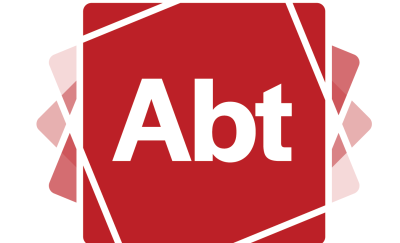An Interview with Meggie Kua Dingi: A Passionate Advocate for Education in PNG



Meggie Kua Dingi has dedicated her life to working with local communities in Papua New Guinea to ensure boys and girls have access to quality and relevant education. She worked with NGOs and international multilateral organisations on education programs before joining Abt Global as the subnational program manager for the Partnerships for Improving Education project. We had the opportunity to sit down with Meggie to hear about what has shaped her passion for education, gender equality and development in Papua New Guinea and in particular her focus on promoting education for girls.
What is your experience of education in PNG?
I grew up in Simbu in the PNG Highlands as the daughter of parents involved in education. My father was a math and science teacher, and my mother was the school administrative assistant. We moved around a lot as at that time in PNG, teachers were annually posted to different schools as a part of their professional development. My father was a very experienced headmaster and moved to schools that needed to be properly managed and brought to standard. I saw my parents mentor many children and became “dad” and “mom” away from home. We always had a house full of students during holidays, and it was always fun. Many of them went on to have careers and would come back to visit my parents and thank them.
Our life was very fortunate because we went to schools both in towns and in villages. That provided me with early exposure to the difference between the two. In the villages there was a lack of access to basic teaching and learning materials. We sourced our own materials such as clay for moulding shapes, glue from the trees, and sticks to use for counting. In the village, learning was more connected with the community, with parents and students playing a hands-on role in supporting the school. Often during the week, school would be shortened to allow students and parents to help with building projects such as new toilets and drains. If the parents did not show up, the students would be sent home. I remember often being hungry when I attended the village schools.
In the towns, my parents could attend their regular jobs without taking time off to help schools, which were better resourced. The school bus would pick us up, I always had my lunch, and we were never required to do manual labour while at school. Instead, we focussed on learning and playing with friends. After school, we did not have to break firewood or fetch water for the afternoon meal like we were required to in the village.
This experience, especially in the village schools, has in many ways shaped my life and my career. My experience in the village has more than anything enabled me to have empathy that’s guided my contribution towards educational implementation approaches.
What brought you to the field of education?
When I was nine years old, I spent a year living in a village with my Auntie and Uncle, who were leaders in the local church. They were both illiterate, and I remember we were at church and I realised they were singing from memory – and not from the hymn book. This was the moment that changed the course of my life, and I became committed to improving lives through education.
Later after I left university, I studied literacy communications, and the first thing I did when I finished was to go back to the village and teach my Auntie to read and write. It was so rewarding; she can read and write now, and we text all the time. She is rightly very proud of her achievements and an excellent example of the power of education to transform life at any age.


Why is educating girls so important in PNG?
According to the U.N. 2021 Global Gender Gap Report, the literacy rate for PNG women is 57.9 percent vs. 65.3 percent for men, while there remain large gender gaps in enrolment at primary and secondary levels and in literacy in PNG. Girls in PNG face enormous barriers in accessing and completing education. Language and traditional gender norms are major factors in this. In PNG you will hear people say things such as:
- You are not a boy, don’t climb a tree.
- Girls should be sitting down.
- As a girl, you shouldn’t be driving a car
I strongly discourage gendered language. It is harmful and affects the psychology of our girls, how they view themselves, and the decisions they make.
We want our children to go to school and graduate. We know that a healthy and educated population results in prosperity, stability, and resilience. This is why I am so passionate about supporting young girls going into school and ensuring they stay in school until they graduate.
What is the Partnerships for Improving Education program?
The Partnerships for Improving Education program is a new investment in teaching and learning funded by the Australian Government and working in close partnership with the Government of PNG. The eight-year program focuses on engaging the community and families to encourage student participation, upgrading the skills of early grade teachers, influencing policy through systems-based change, and improving learning outcomes for girls, boys and children with a disability.
I am hopeful we will achieve our aim of markedly increasing enrolment and retention of all children in school, and particularly for girls and children living with a disability. I am working with a great team full of passionate people who have delivered programs in PNG before.
What I like about this program is that the design facilitates a meaningful and long-term impact. On a personal level, it allows me to do what I love – to work with our communities and the government towards ensuring every child has access to a quality education.
Meggie is an integral member of our Abt Global team and an inspiration to those around her. Every day she acts as a role model for how women in PNG can have a career as well as a family and how this financial stability can help children get the best life and education.
Read More

Corporate Newsletter – May 2024
Discover our impact on global issues and innovative solutions. Dive into Abt's latest feature stories, blogs, webinars, and more!

At Work – April 2024
At Work dives into our latest research and expert insights on workforce development and economic mobility. Enjoy this issue and check out more on our website.

Evaluations & Methods – March 2024
Dive into our March issue to see how our research, monitoring, and evaluation work can help you!

Abt Associates Now Abt Global, Acknowledging Almost 60 Years of Worldwide Impact
Abt Global is now Abt Global, underscoring the scope of our mission to improve the quality of life and economic well-being of people worldwide.